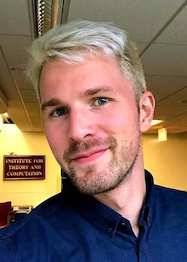Boris completed his PhD with Prof. Hiranya Peiris in cosmology and was the recipient of the Darius Prize.

I have fond memories of my PhD at UCL. It wasn’t always easy, but getting a PhD never is.
In the Astrophysics Group I was given the support and resources I needed to develop as a researcher, and start my academic career in great conditions. I felt included as soon as I started, and I quickly made friends. Beyond the Group itself, the Graduate school offers a plethora of training courses, technical or not. For example, I took a few on academic writing (including one involving meditation exercises!) which helped me write my first journal publications. Crossing paths with students from other disciplines also broadened my understanding of modern scientific research. Finally, the interactions with other London institutions (in particular between cosmology groups) made me feel part of a vibrant scientific community. After my PhD I went to New York University as an independent research fellow, and I have now returned to London to work at Imperial College, also as an independent fellow. My time at UCL has shaped how I work: it showed me how to foster friendly work relationships together with academic excellence, outside of the cliches of toxic competitiveness that one sometimes hears about.
One tip for PhD applicants: while science is obviously at the core of the PhD, there is a lot more beyond that. The choice of group, thesis subject, and supervisor should weigh a lot in your decision to embark on a journey that will capture most of your time and mind space for a few years. Speaking to former students should give you a good idea of what to expect. I would also recommend choosing a place that will help you develop wide-ranging transferable skills, for example embracing feedback and constructive criticism in all aspects of your work.
 Close
Close

